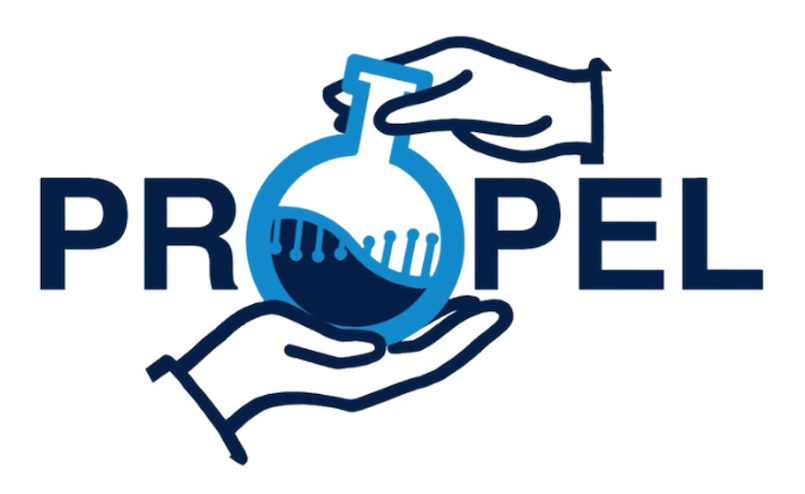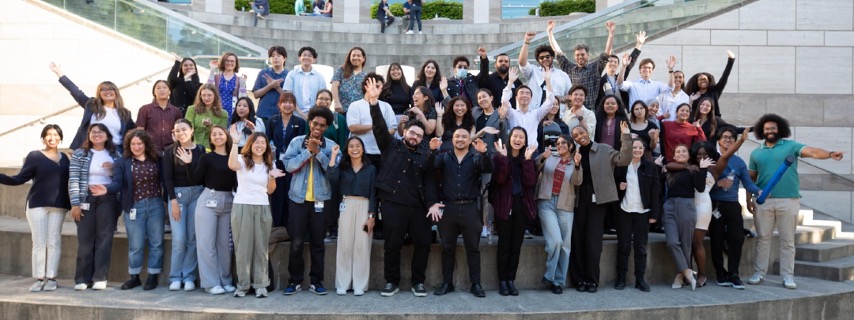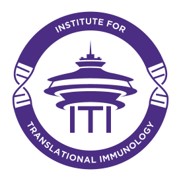

PROPEL Northwest (PROPEL NW)
Our mission is to provide research experiences and career development support for postbaccalaureate scholars who demonstrate a commitment to advancing research and building community.
OVERVIEW
Postbaccalaureate (postbac) research opportunities are essential for preparing aspiring PhD students, especially those who lack time or access for unpaid lab work during their undergraduate studies or attend schools without well-funded research labs.
PROPEL is a 1-2 year paid research opportunity for postbac scholars who seek laboratory experience, graduate school application prep, professional development, and networking opportunities. Scholars must be employed full-time at the University of Washington, Fred Hutch Cancer Center, Benaroya Research Institute, or similar institute. All funding must be provided by the host lab. Additional funding to support the scholar may be available through a UW department or institute affiliated with the host lab.
PROPEL started at UCSF in 2020 and the program continues to be a tremendous success! Check out this recent publication describing the PROPEL model. The Institute for Translational Immunology at the UW has partnered with UCSF PROPEL in an effort to nationalize the PROPEL program. Visit their website to learn more: UCSF PROPEL
CURRICULUM
Activities will occur approximately 1-2 times/month and typically take 2-3hrs/event (excluding prep or transit time). Social and networking events will be organized in collaboration with other UW departments hosting PROPEL scholars and the Fred Hutch. Scholars will meet with secondary postdoc mentors each quarter.
Fall Quarter: September – December 2025
September: Basic Bench Essentials: Lecture/workshop reviewing basic lab techniques, including sterile technique, lab math, and keeping an organized lab notebook.
October: How to Apply to Graduate School: A Step-by-Step Series. Choosing the Right Graduate School for You (Session 1). Informational session to discuss the structure of graduate programs, understand the components of an application, identify features of competitive applications, and answer any questions from trainees.
November: Application workshop (Session 2): Work with postdoc mentors and graduate students to discuss drafts of written applications
December: Navigating the interview process (Session 3): Panel led by a faculty member, postdoc, & grad student to provide insight into what to expect during and after the interview process, how to talk about research in a meaningful way, and questions to ask during the interview.
Winter Quarter: January – March 2026
How to Apply to Graduate School: A Step-by-Step Series continued
January: Interview workshop (Session 4): Short, mock interviews with grad students, postdocs, & faculty.
February:Journal Club: Read high-impact scientific paper(s) and discuss jargon, interpret figures, identify assays used, and review the impacts of discovery.
March: Mastering the Art of a Captivating Talk: Lecture to review different ways to tell a scientific story, how to set-up a good question, hypothesis, how much data to present, and the importance of model slides.
Spring Quarter: April – June 2026
April: Journal Club: Read high-impact scientific paper(s) and discuss jargon, interpret figures, identify assays used, and review the impacts of discovery.
April, May, June: Communication workshop series: Scholars attend the Communication workshop series led by professors from UW Communication Leadership Program.
March, April, May, June: Research in progress seminar: Scholars present their research progress (15 min each, with 5 min for questions)
Eligibility
Trainee Eligibility
– Must be working as a full-time research technician/scientist (or equivalent) in the lab of a faculty member at UW or affiliate institution.
– Must have earned an undergraduate degree at an accredited institution. Trainees with Master’s degree are also eligible.
– Highly interested in pursuing a doctorate degree in biomedical science (PhD or MD/PhD). PROPEL is not appropriate for trainees who intend to apply to medical school.
– Must commit to participating in program curricula for at least one academic year. Program curricula is ~5hr/quarter and occurs during working hours.
– Must be a US Citizen or permanent resident. Completion of undergraduate or master’s degree by June.
Mentor Responsibilities
– Support scholar’s scientific development
– Provide time and flexibility for scholar to participate in PROPEL curriculum and events. Curriculum averages 5hrs/quarter.
– Give back to PROPEL by attending networking events, participating in panels, and teaching workshops.
How to find a job at UW
The UW is currently in a hiring freeze; open positions with PROPEL NW mentors will be posted here when hiring resumes. Please check back!

UW Matchmaking Event
Our Matchmaking Event is over! Check back here for details about next year’s event.
